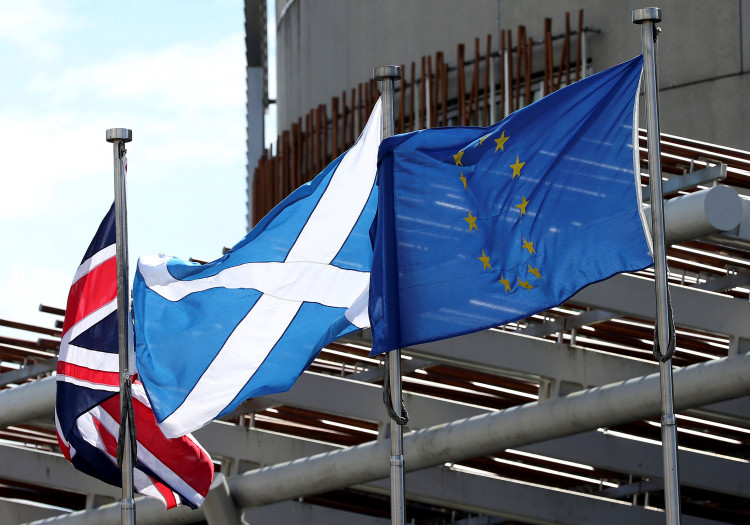If Scottish and Irish nationalists have their way, the political entity known as the United Kingdom of Great Britain and Northern Ireland will cease to exist within this decade.
In its place will be an independent Scotland and a United Ireland attached only to England and Wales by history. New post-Brexit polls in Scotland and Northern Island show a swell of support for Scottish independence from Great Britain and for forming the single Irish country called United Ireland.
A Panelbase survey published in the Sunday Times shows support for Scottish independence standing at 49% compared to 44% against, with 7% undecided. It also shows voters expect Scotland to become independent within the next decade by margins far exceeding two to one in England, Wales, and Northern Ireland.
Scottish nationalists are now laying the groundwork for a second independence referendum. Recent polls show Scottish nationalists led by the Scottish Nationalist Party (SNP) will likely win a record majority in elections for Scotland's devolved parliament slated for May 6, leading to a constitutional crisis in the UK.
Scotland's First Minister Nicola Sturgeon pledged to hold a plebiscite in the "early part" of the next parliamentary session. SNP has said that if it wins a parliamentary majority at the elections, it will pass its own bill so a referendum can take place once the COVID-19 pandemic is over.
SNP threatens to call the wildcat referendum if Prime Minister Boris Johnson refuses to grant one himself. It said Johnson's government would either have to agree to a referendum or take legal action to dispute the legal basis of the referendum.
"Such a legal challenge would be vigorously opposed by an SNP Scottish government," said the "Roadmap to Referendum," an 11-point SNP document released Saturday laying out plans for another vote on Scottish independence.
Johnson again dismissed calls for a vote on separation. He claimed a 2014 referendum where Scots voted to remain in the UK by 55% to 45% had settled the matter for the foreseeable future.
Johnson's task of preventing the dissolution of the UK has been made much harder by a growing sentiment in Northern Ireland for unification with the Republic of Ireland.
The same poll published in The Times revealed 51% of Northern Irish voters favor a referendum about their future within the next five years compared to 44% who oppose it. It also shows support for a United Ireland stands at 42% compared to 47% that oppose Northern Ireland leaving the UK. Another 11% are undecided.
Northern Irish voters believe there will be a united Ireland within ten years by a margin of 48% to 44%.






